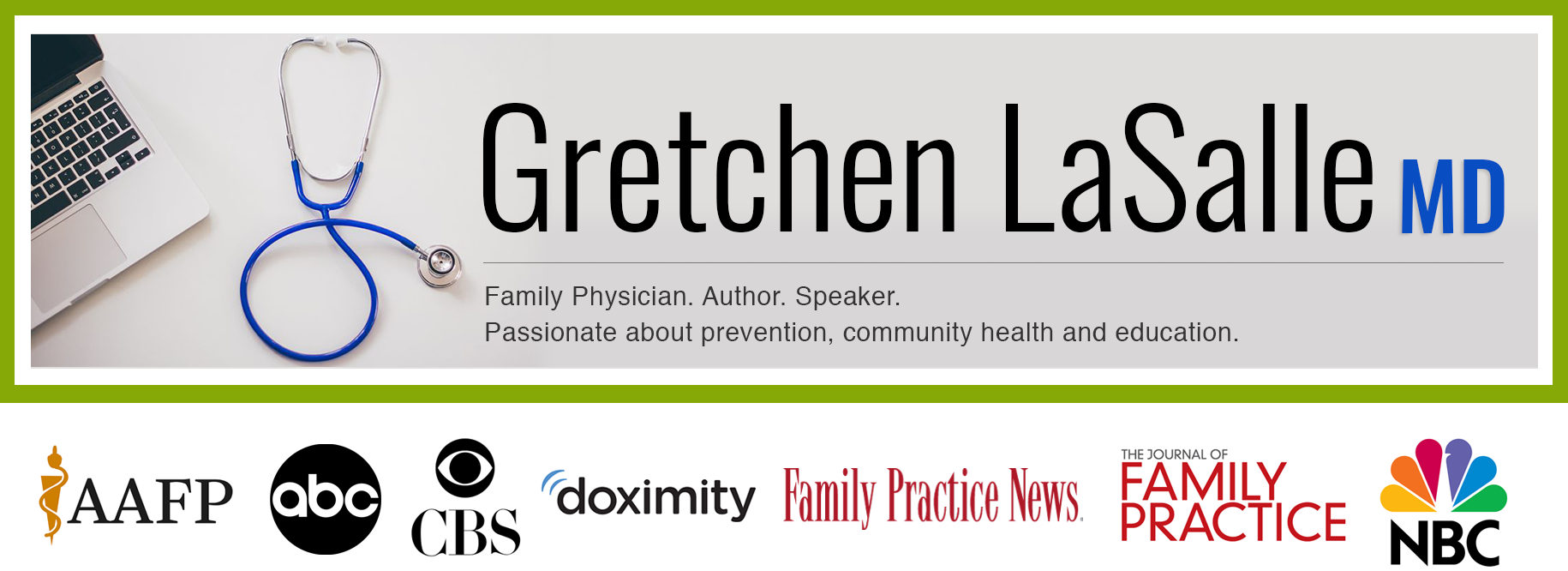I think we can all agree that cancer is bad. If there is any possible way to prevent cancer, we want to do it. Now, thank God and thank science, we have a vaccine that does that! So why is the HPV vaccine so apparently “controversial”?
The Human Papillomavirus (HPV) causes tens of thousands of cases of cancer in the US each year – cervical, vaginal, vulvar, penile, anal, oral and throat cancers. It also causes genital warts. Sounds like something we would want to try and avoid, right? Yet concerns and misunderstandings about the HPV vaccine abound. We physicians who care for kids and teens hear these concerns on a daily basis and they are, unfortunately, leading some parents to decline this life-saving vaccination for their child.
Today, we are here to clear up any misunderstandings and hopefully set minds at ease so that we can achieve the goal we all seek – to protect our kids.
First, a few important pieces of information:
- The current HPV vaccine prevents against 2 strains of the virus that cause genital warts and 7 strains that cause cancer.
- It is recommended to give the vaccine at age 11-12 but it can be given as early as 9 and as late as 26 (watch for new recommendations coming, as the FDA has recently approved it for use in 27-45 year olds).
- If given before age 15, there are only 2 shots needed (at time 0 and then again 6-12 months later). If given at age 15 or older, there are 3 shots needed (time 0, 2 months, and 6 months).
- There have been reports of fainting after this vaccine (though teens faint more commonly with any vaccine) so we recommend watching them at the doctor’s office for 15 minutes after each shot.
Now, on to the common misconceptions…
#1: The HPV vaccine is new. I don’t want my child receiving a vaccine that isn’t tested.
- The HPV vaccine was licensed in the US in 2006. Relative to all the other vaccines we recommend for kids, this one is new. And new is always a little scary.
- But it is now almost 2019. This vaccine has been around for nearly 13 years (not so new) and is making great strides in decreasing the rates of genital warts and pre-cancers (which now won’t go on to develop into cancers).
- Also important to note is that, before any vaccine comes to market, it is studied for safety and effectiveness for an average of 10-15 years. So, this vaccine has actually been around for quite some time.
- And speaking of all of those other vaccines we get as kids, that we are comfortable with and do without hesitation because we know the benefits to life and health…. HPV causes much more suffering and death each year than many of the other infections against which we more readily vaccinate. How often do we see someone dying from Tetanus? Thankfully, very rarely – because we vaccinate. Tetanus is a terrible way to go. But so is cancer of your throat or penis or cervix!
#2: The HPV vaccine is just for girls, right?
- While the vaccine was originally marketed only to girls (which is still confusing to me and probably to many of you), it is now appropriately recommended for girls and boys. Both boys and girls can spread the virus and both can suffer severe consequences from catching the virus. Vaccinating both just makes sense.
#3: My child is only 11, why would they need a vaccine against a sexually transmitted disease at this age?
- We want to vaccinate kids before they become sexually active. This is a prevention vaccine. It does nothing to treat the infection once it occurs.
- Also, young immune systems are vigorous and healthy immune systems. We mount a much stronger immune response to this vaccine when we are young. Waiting until later years not only means possibly missing the window of opportunity for prevention, but it also makes it more likely that the vaccine will be less effective than it might otherwise be.
#4: My kid is a good kid. They are not going to engage in any risky sexual behavior.
- Contracting the HPV vaccine requires NO high risk activity whatsoever. A person could catch the virus the very first time they have sex. And in the case of genital warts, only skin to skin contact is needed – no sex is required.
- It is estimated that 79 million Americans are currently infected with HPV. 14 million people become newly infected each year. All of us will likely come into contact with the HPV virus at some point in our sexual lives.
- The cancer causing strains of HPV have no outward signs or symptoms. Even genital warts are often difficult to see and, therefore, difficult to avoid. This is partly why HPV spreads so easily.
- Even though we have raised our kids right, they are still kids. You remember what it was like to be a teenager, right? Did you always make good choices? Did you always tell your parents everything you were up to? If you are like most of us then the answer is “no”. Our kids will be no different. Even though we may trust our kids, are we willing to bet our child’s life on that trust or on a future partner we haven’t even met yet?
- And, even though we hate to think about it, some of our kids will be the victims of unwanted sexual contact. Shouldn’t we do everything possible to protect them from potentially deadly consequences?
#5: If I give my child the vaccine at this age, isn’t it going to just encourage them to have sex at an earlier age?
- There have been numerous studies looking at this very question and the answer is “no”.
- When we look at markers of sexual activity (the number of sexually transmitted infections, prescriptions for birth control, pregnancy, etc.), there is no increased frequency in kids who received the HPV vaccine versus those that didn’t.
- A recent study printed in the Canadian Medical Association Journal showed girls receiving HPV vaccination had no change in risky behavior or were SAFER in their sexual behaviors than girls not receiving HPV vaccination. Presumably, this happens because of the education about sexual activity that goes along with giving the vaccine.
#6: I’ve heard the HPV vaccine can cause premature ovarian failure and fertility problems.
- Whenever a concern is voiced about any vaccine, scientists get to work to determine whether or not the concern is warranted. Is there any truth to the claim?
- Again, multiple studies show no increased rates of early ovarian failure or insufficiency in girls vaccinated versus those that are unvaccinated.
- A recent study printed in the journal Pediatrics studied nearly 200,000 girls receiving their 11-12 year old vaccines (HPV, Tdap, MenACWY) and found only one case of POI following HPV vaccination. In that case, the delayed menstrual period was not noted until 23 months after the patient received the vaccine. Hardly proof that the vaccine caused the delayed period.
- What can lead to fertility problems is the HPV infection itself. If a woman develops cervical pre-cancer or cancer from HPV, partial removal of the cervix or full hysterectomy may be necessary. These procedures, required to treat the effects of HPV infection, could most certainly affect pregnancy outcomes.
This vaccine is a breakthrough in cancer prevention. We are so fortunate to now have a way to protect our kids from at least some forms of cancer. I have given these vaccines to my own children and have complete confidence in their safety and effectiveness.
As a physician who takes care of both kids and adults, I look forward to the day when I no longer have to do invasive and painful procedures on my patients because they have developed pre-cancerous changes on their cervix caused by HPV.
Let’s help stop cancer. Please. Vaccinate your kids against HPV!
Your partner in health,
Gretchen LaSalle, MD


Can you please address the misconception that using a condom will prevent HPV. Thank you
Thanks, Linda. Great point! HPV can be transmitted with only skin to skin contact. No penetration or ejaculation required! Condoms are great. Apart from abstinence, they are the best way to prevent sexually transmitted infections. But we can’t rely on them to fully prevent HPV. That is why the HPV vaccine is so important!
Does this vaccine contain Formaldehyde?
Hi Elfrida,
No, this vaccine is not produced using formaldehyde. If you are ever wondering what is in each vaccine, check out the “Pink Book” by the CDC (Epidemiology and Prevention of Vaccine-Preventable Diseases). It will tell you everything you need to know about each vaccine. Formaldehyde is used to inactivate viruses or bacteria in killed virus vaccines. It is used in the manufacturing process but there is very little formaldehyde actually in a vaccine. Our bodies actually require formaldehyde and manufacture it for processes that take place in our cells. We have more formaldehyde in our bodies at any given time, and we get more formaldehyde naturally in our foods, than we are ever exposed to in any vaccine. But short story long… the HPV vaccine is not manufactured using formaldehyde.